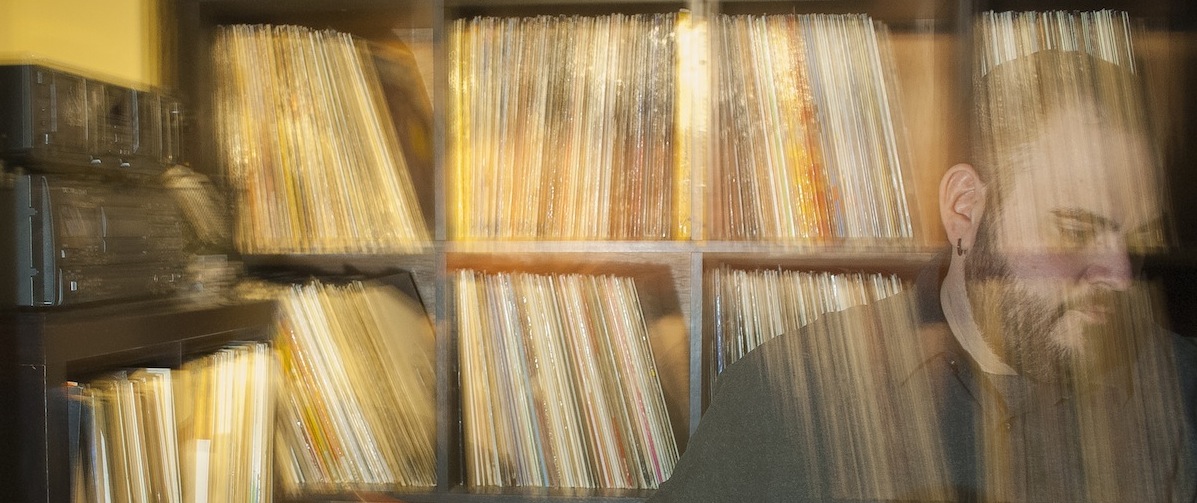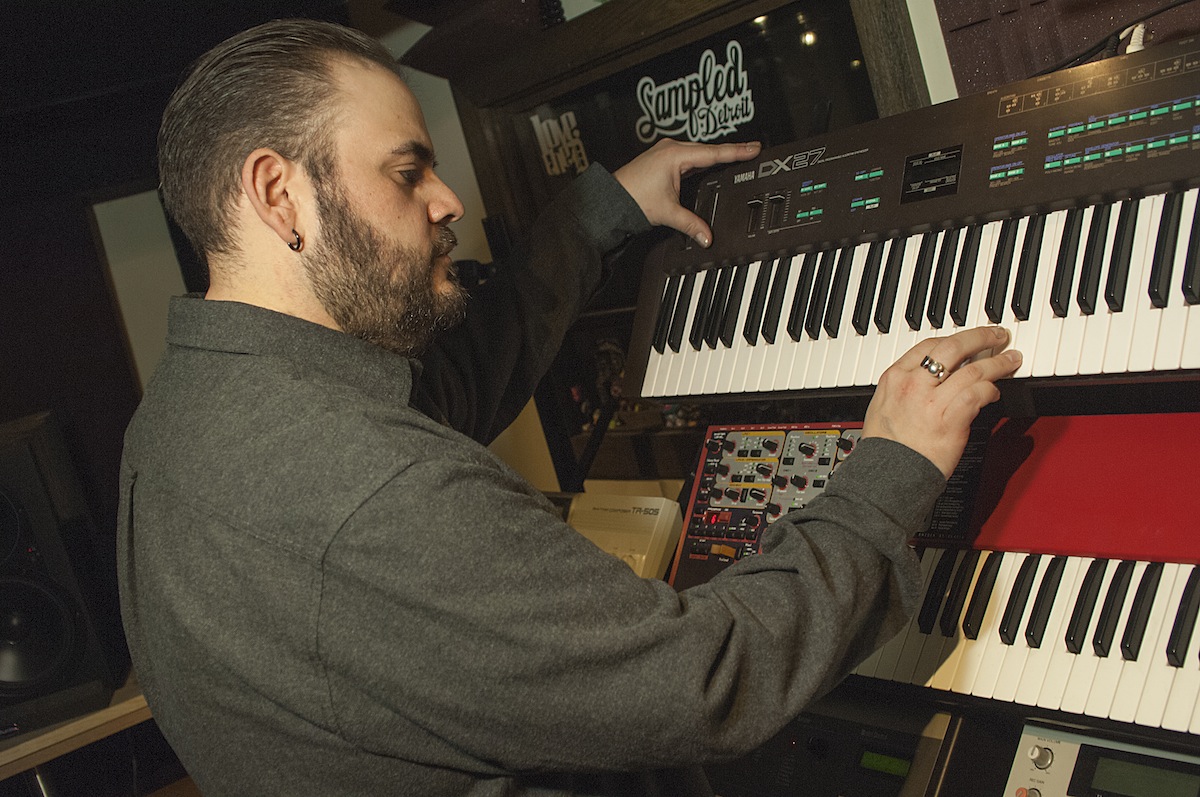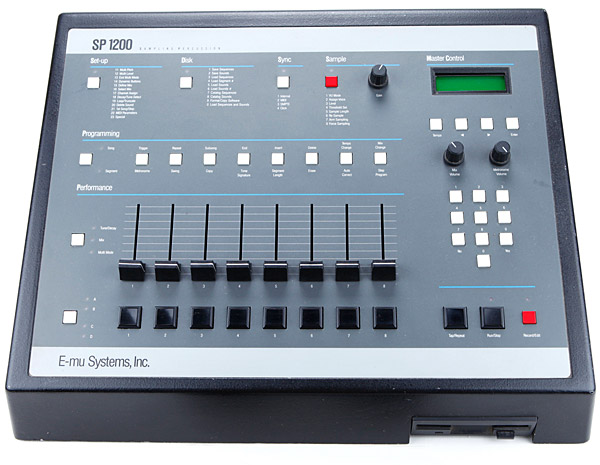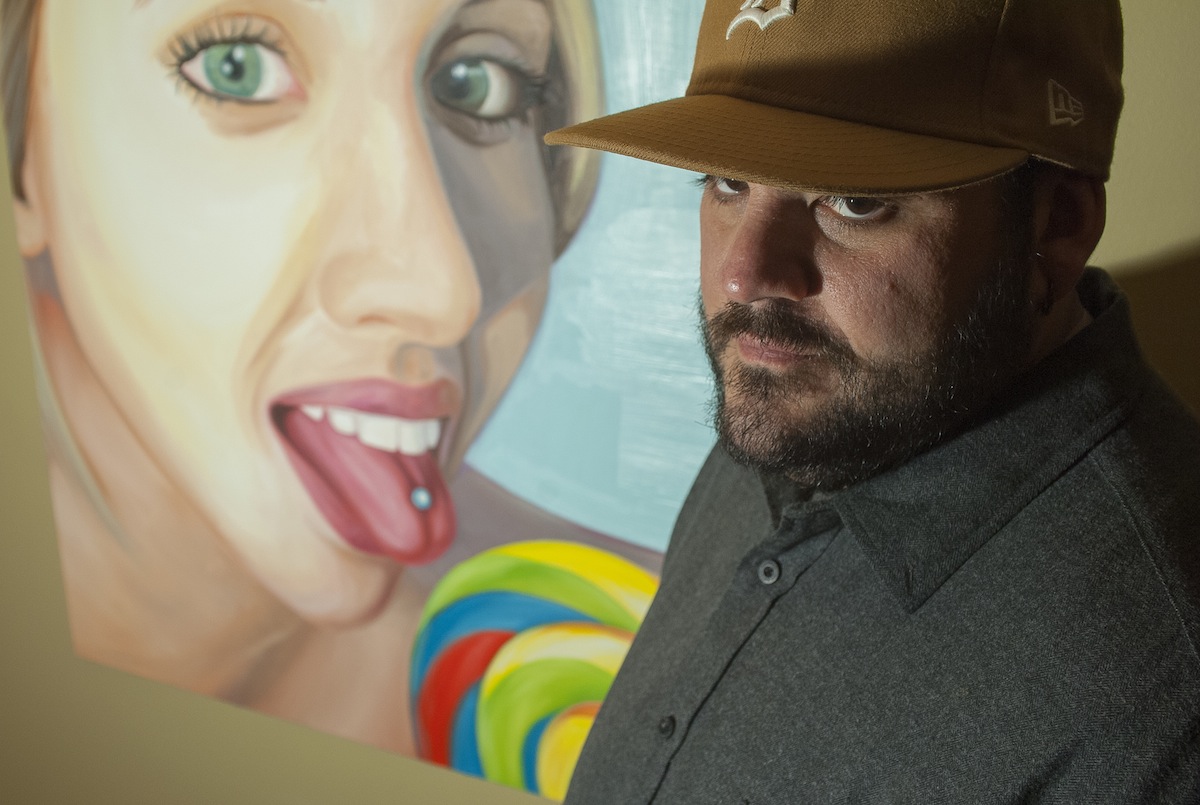Get Familiar: Detroit’s Chuck Daniels
“We come from a lot of hardship and suffering as a city, so we have to hustle harder than most."

Get Familiar: Detroit’s Chuck Daniels
“We come from a lot of hardship and suffering as a city, so we have to hustle harder than most."

Detroit hustles harder: A proud declaration of the city’s grit and unwavering spirit, it’s rare to go anywhere in the Motor City these days without seeing those three words emblazoned in block print across someone’s chest. Embodying the motto to his core is Chuck Daniels. “We come from a lot of hardship and suffering as a city,” he says, “so we have to hustle harder than most. As artists, it’s with our music and just putting your nose to the grindstone and putting in the work.” With upwards of 25 years hard work and serious hustle, he should certainly know.
Daniels grew up with his father’s hi-fi system, turntable and records—and, after his parents split, he was introduced to disco and soul music from his mother’s boyfriend. At the age of 14, he befriended a boy named Ross, who had Technics 1200s and a Numark mixer at home; the pair would go back to Ross’ basement and mix records every day after school. “[That’s really when] I caught the bug and started buying my own records,” he remembers. The two budding jocks formed a DJ company and began playing everywhere from weddings and school dances to topless bars and cabarets.
After attending his first rave, a Detour party in Ypsilanti around 1996, Daniels rapidly evolved. “[It was] a combination of that [experience], and just getting sick and tired of playing pop music. If I had to play Tone Loc’s “Wild Thing” one more time…. One day I told Ross I couldn’t do weddings anymore. I said it was just not for me.” He sold Ross the company and began delving deeper into the world of underground music.

He soon met Dean Major, who was behind the legendary Syst3m parties of that era and, after getting booked at increasingly more of the area’s undergrounds, became inspired to start throwing his own. His party debut, Can You Dance to My Beat, featured Derrick Carter and Mark Farina going hour-for-hour in front of 1400 party kids in the third-story ballroom of a vacant school, with young Detroit up-and-comer Derek Plaslaiko opening.
Like most DJs in Detroit at that time, Daniels’ weekly schedule involved scouring the shelves of Record Time and Melodies & Memories for the hottest new releases. “[Those stores] were hugely important to the music culture. They were the main places that stocked this music that I love, and we were fortunate enough to have people like Mike Huckaby, Matt Clarke, Michael Geiger, HouseShoes and Seth Troxler [working there]. These were heads that were very, very passionate about the music. [The stores] were an integral part of the underground scene in Detroit,” he reflects. “Now you can just sit on the couch in your underwear and click on Beatport, or even shop for records on Juno. People have gotten lazy.”
Recognizing that music production would be a key component to getting his name out beyond his hometown, Daniels began acquiring analog gear. “I was already into professional audio,” he explains. “DJing weddings, we had to have our own equipment, and I had started mixing some bands and working for a couple of audio companies by then. I had a pretty good grasp on audio and the way it worked, so making music wasn’t that difficult to transition into.” He started his label, Sampled Detroit, and released his first track on it in 2002. “I’m a little bit all over the place when I make music,” he says of his process. “Ever since I got my SP-1200 drum machine, that’s pretty much where I start every track. The beat for me is the most important. If there’s not a good foundation of a beat, it’s hard for me to move forward.”

About eight years ago Daniels’ health took a sudden and unexpected turn, forcing him to put music on hold. “I discovered I had Burkitt’s leukemia, which took me out of the scene for close to two years,” he relinquishes. He tried to continue making music despite the circumstances, but found it too difficult. “I didn’t really think I was going to continue after that, because it was kind of like a whole new start,” he admits. But out of the blue, Derrick Carter reached out to him about doing a remix for his label, Classic Music Company. “That really helped to bring me back into things,” he reveals with gratitude. Although starting his career for a second time was daunting, he came back with a renewed passion and stronger sense of urgency to succeed; he followed up the remix on Classic with a slew of others, which in turn saw his gig docket swell.
His health long since back and his passion unwavering, Daniels is hustling harder than ever. He ended 2015 with a rousing set for Boiler Room’s Chicago vs. Detroit event series, and Traxsource ranked “Shout Away,” his collaboration with Oliver Dollar, as the No. 8 Best House Track of the Year. Later this month he will be commemorating his first solo party effort with a retrospective event at Detroit’s Marble Bar, this time with Plaslaiko headlining, followed by local appearances alongside Carter, Dollar and Maceo Plex.
Looking around the living room of Daniels’ pristine Detroit-area house gives a glimpse into the life he tends to keep private. An assortment of tasteful artwork hangs on the walls, and multiple spaces throughout are lined with Kidrobot vinyl figurines. A supporter of his city’s creative forces in all forms, the majority of his pieces were made by local artists, including paintings by Michelle Tanguay and Johnny Saco. His impressive basement studio, which he likes to keep open to local talent for mixing and mastering, was featured in the music video for JR JR’s 2011 cover of Gil-Scott Heron’s “We Almost Lost Detroit.” With his diagnosis eight years ago, the world almost lost Daniels and he almost lost hope. But demonstrating the perseverance Detroiters pride themselves on, he has found strength, and with it the happiness and success he has hustled so hard to attain.
All photos: David Shanaman


